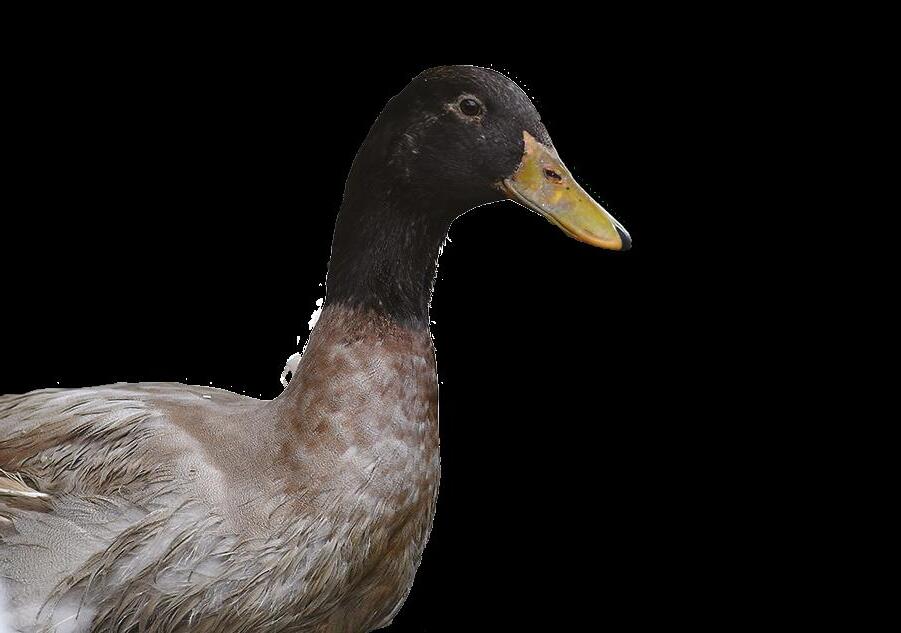
1 minute read
Brazilian poultry tests positive for HPAI. Are exports at risk?
Brazilian poultry tests positive for HPAI. Are exports at risk?
Brazil leads the world in poultry meat exports. The 4.8 million tonnes it shipped abroad in 2022 represented around a third of the total poultry meat volumes exported globally.
One of several factors behind this rise to the top was the fact that, unlike competitors in Europe, North America, or Southeast Asia, Brazil was in a neighborhood free of highly pathogenic avian influenza (HPAI). HPAI is a disease which can severely damage poultry exports — not only because the infection and culling used to control the virus reduce bird numbers, but also because some importers will reject poultry meat from countries or zones known to have HPAI on sanitary grounds.
ARRIVAL IN SOUTH AMERICA’S LARGEST PRODUCERS
Unfortunately, that disease-free status appears to be changing. In the last quarter of 2022, H5N1 HPAI was detected in South America for the first time. As wild birds spread it throughout the continent, it also reached the poultry population in some countries — for example, Argentina, South America’s second-largest producer, suspended exports of poultry and by-products entirely between the end of February and late March after detecting HPAI in a commercially-farmed bird. Resuming those exports meant certifying that particular regions remained free of HPAI, and achieving recognition from trade partners of that new regional-level disease-free designation.
And then, this quarter, HPAI reached Brazil. From mid-May to late June, a few dozen wild birds tested positive for HPAI in seven states. Then, on 27 June, Brazilian authorities confirmed the detection of a first case of HPAI in a farmed bird in Serra, in the state of Espírito Santo. The farm where the outbreak was confirmed belongs to a smallholder raising several types of birds.
Brazil’s Ministry of Agriculture (MAPA) stressed that the case is isolated, and that Brazilian commercial poultry production
In an interview with CNN, Brazil’s Minister of Agriculture, Carlos Fávaro, reaffirmed that there was no risk of the country facing trade barriers in the short-term and that the government has taken all sanitary measures necessary to eradicate the virus on small farms.
In an official statement, the Brazilian Association of Animal Protein (ABPA) recalled that the outbreak of HPAI on a subsistence farm does not provoke any change to the country’s “free of avian flu” status as per the World Organisation of Animal Health (WOAH).
“This is a backyard case,” the statement reads.

REGIONALISATION
As of the time of publication, it remains unclear how the situation will develop — most notably, whether the disease will make it into commercial flocks, and how Brazil’s international trade partners will react if it does.
Japan, for example, suspended purchases of poultry from the state of Espírito Santo immediately after the case in domestic birds was confirmed. Rupert Claxton of Gira, a consultancy, called Japan’s move “interesting”, observing “firstly, [a backyard outbreak] shouldn’t lead to a ban, and secondly, Japan doesn’t normally acknowledge regions!” Japan, it should be noted, is not an unimportant market for Brazil; it was the third largest destination for Brazilian poultry in 2022, and is the world’s largest importer.
In a presentation in April 2023, Dr. Sula Alves, Technical Director of ABPA, observed that MAPA had been negotiating protocols to minimize restrictions and limit the commercial impact of an HPAI outbreak. He mentioned China (1st largest export destination for Brazilian poultry), Japan (3rd largest), South Africa (5th), and several others as countries with whom negotiations were ongoing.
78% OF BRAZIL’S POULTRY EXPORTS ARE PRODUCED IN JUST 3 STATES.
However, given the high geographic concentration of Brazilian poultry production, regionalisation may not be terribly effective in keeping exports flowing. According to the most recent annual report by ABPA, 78% of poultry exported from Brazil is produced in just three southern states: Paraná, Santa Catarina, and Rio Grande do Sul. In order for those states to continue to export, they would need to keep their commercial operations free of HPAI — and all three of the states have had wild birds test positive for the HPAI virus along their coastlines.
WHERE WOULD THE EXTRA VOLUMES GO?
Because of this uncertainty, all eyes are watching Brazil. Speaking in the final days of June, Dylan Hughes, a poultry analyst for Urner Barry, observed: “it is a little too early to truly tell if/how the positive HPAI case in Brazil could impact the poultry landscape... We’re specifically monitoring how China responds to this development. This trade destination, which represents one of the largest importers of poultry by volume, has historically taken a stringent approach to disease outbreaks. If we do happen to see HPAI-related restrictions on Brazil production destined for China, this could potentially allow U.S. exporters to fill in the missing gaps.
“On the other hand, Brazil relies heavily on export trade volume. If there was a bottleneck in movement headed into China, this could prompt Brazil to rely more heavily on alternative destinations to offload their production, thus making for a more competitive marketing landscape for U.S. exporters.”
GIRA, for its part, observes that in the first five months of 2023, exported volumes grew by 11%. “Some countries dependant on imports from Brazil are anticipating their purchases in case HPAI enters the commercial sector,” stated Laurène Bajard of Gira.
Amid a backdrop of weak domestic demand and record-high Brazilian production volumes,“[HPAI-related export restrictions] would increase domestic availability and crash prices,” she said.
Meanwhile, in the days following the announcement of HPAI in a domesticated bird, one UK-based meat trader observed that there was a “shedload” of Brazilian chicken fillets on the water heading towards Europe and the UK.
“Now we’re being offered product that’s nearly 40% cheaper this week compared to where it was maybe 3-4 weeks ago.
“[Brazilian exporters] are panicking,” he believed.
By Shannon Behary, senior editor
With contributions by Luís Vieira, analyst










